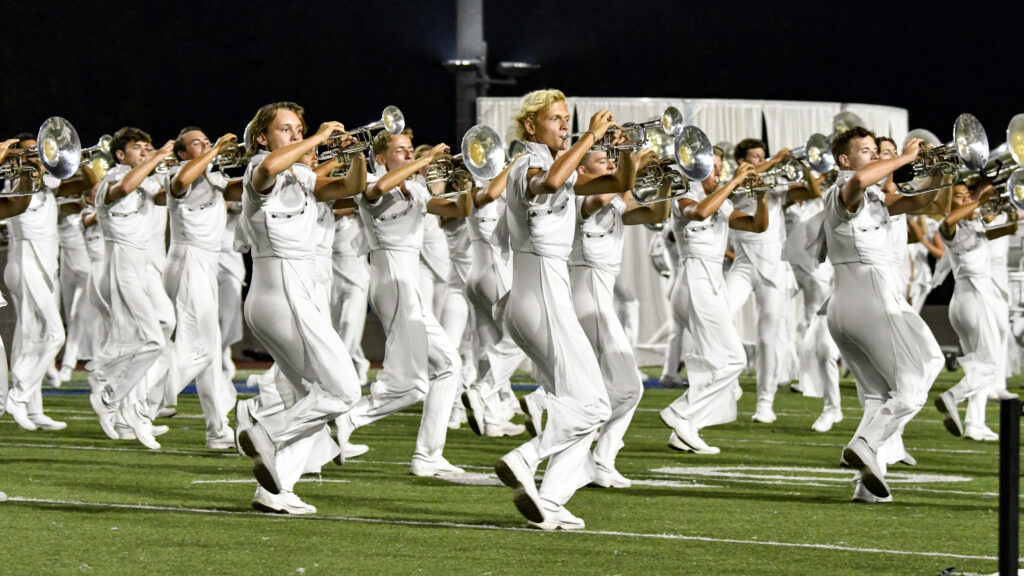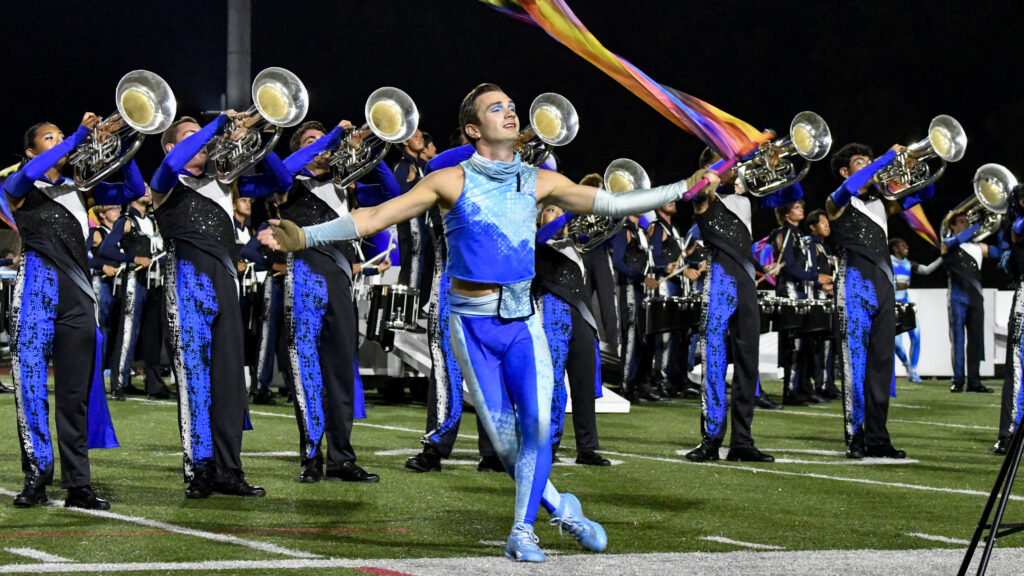By Jared Reno
Seattle Cascades

This is the first installment of Run-through, a DCI.org column by Jared Reno, a mellophone bugle player with the Seattle Cascades. Reno will report back from each spring camp, and continue his reports through the summer.
Ah, April, that time of year in the Pacific Northwest when the weather can go from sunny and warm, to torrential downpour in a matter of minutes. When attempting to pack for drum corps to prepare for the weather, this makes for a very difficult task. We had to remember to bring athletic shorts, rain pants, sweatshirts, waterproof jackets, T-shirts and at least four pairs of socks. You never can predict the weather here. The forecast called for a weekend of rain, but this weekend was much more delightful than the forecast predicted.
Camp was to begin at 9:30 p.m. The first block would go until 12:30 a.m. Saturday morning with lights-out at 1 a.m. The tone for the horn line was set at 9:28 p.m. as we were in our room, dressing the arc, and waiting for our staff to show up. As our staff walked in at 9:31, one minute tardy (a rare oddity for our brass staff) the horn line was already starting our stretches with Travis, this year’s head drum major.
The purpose of this evening block was technique in the brass section. We knew we would finally get our fourth piece, “Libertango,” so the horn line was filled with anticipation. That anticipation turned into push-up after push-up as Todd, our brass consultant, felt the need to get us stronger. We didn’t object to it. With Todd it’s always a competition to see if we can take what he deals out to us. This whole camp I feel we took it quite well. If we actually practiced any music during the block at all, I can’t remember. I only remember that we spent a good time on technique issues, focusing on lip slurs, articulations and finger exercises.
At 8 a.m. we woke and went for our jog around campus then broke for breakfast, showers, and moving our stuff to the edges of the gym so the guard would have a place to learn routine. At 9 a.m. we were in our uniform pants in the horn arc doing our warmup, preparing for four hours of music and playing “Libertango” for the first time. We had the pants on because we were doing final adjustments for pant-lengths and waists before all-days rehearsals begin.
While playing through one segment of “Libertango,” Lewis Norfleet, our brass arranger, painted us an image for us to play to. He wanted us to imagine a female: Thin, long dark hair, in a deep red dress. To him, it was lust — that’s what the song was about. That’s what we needed to tell a story of. He then went through and isolated sections so that we could hear everything going on. If I were to isolate one section of the show that will have the impact on the crowd that “Riffs” did for most of tour last year, I would say “Libertango” will be the song, and that would be the section.
Our visual block was spent reviewing drill from the last camp, and finishing the drill for the opener. Unfortunately, about 13 members of the corps had school-related functions and were unable to be at the camp until Sunday, so we had holes. We did a good job dealing with that in learning the opener and retaining what we learned.
The evening block was more ensemble rehearsal. This time we didn’t have Lewis with us, it was Todd and Steve, the brass caption head. We worked “Harp Concerto” and “Huapango,” the second and first movements of our show. Todd’s goal for that night was 400 pushups. We were short of that goal, but I think we all had fun attempting to get to that number.
The day finished with a 30-minute corps meeting and then lights out at 11. The pillow patrol was on the prowl, shortly after lights-out. Both the Kelseys in the corps, who are both in the alto section, had their birthdays on Saturday. It was a swift attack, but it left a lingering “thump” in our minds.
The next morning was very different from the usual five-minute run. It was Easter Sunday. The corps admins, not wanting to take anything away from tradition, had planned a short Easter-egg hunt on the guard field. We followed our drum major to the field for our run, but instead of the running through the muddy track, we ran onto the field in a large mob chasing after purple, gold, pink and green eggs. We then spent the next hour eating, showering, packing and loading our vehicles. We had a short morning rehearsal in sectionals, then got together in ensemble to run through “Oblivion,” the ballad, and “Harp Concerto.” We broke about 10:30 for cleanup and lunch. Then about 11:30 we drove over to the football field for our last block from noon to 4 p.m.
We began the block by learning a rewritten ending to the opener, one that seemed a little more “old-school” to the current members of the corps, but that we agreed would probably have a better effect. After that, we broke for 10 minutes of warm-ups and then got back together for a full-ensemble rehearsal of the opener. After 30 minutes of ensemble we had a water break and then began the ensemble with visual rehearsal. We worked from top to bottom, and then finished with a singing run-through and then a full-out run-through.
Once done, the corps dressed up our arc and listened to comments from the staff. Lewis was the last to speak this time. He brought us all in around the pit, and summarized the weekend for us. For the first time since January we had the full corps with us: Brass, percussion and guard. We were called to attention by Travis, and then, as has become a very valued tradition with the corps, we were dismissed in Cascades’ fashion.
The weekend didn’t seem very long, yet we still got a lot accomplished. Unlike what was predicted, there was little to no rain, and the sun was out in full force. Hopefully some of us will bring sunscreen the next time around. The next two camps will be spent putting the next two movements of the show on the field. If we progress as we have thus far, it’ll be another great season for the Cascades.





